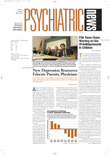The Centers for Medicare and Medicaid Services (CMS) will utilize the Model Guidelines developed by the United States Pharmacopeia (USP) to help determine whether prescription drug plans offering coverage to Medicare beneficiaries under the new Part D drug benefit meet the minimum legal standards.
The Medicare Modernization Act (MMA) specifically charged USP with the development of guidelines for formulary composition. However, CMS has noted that prescription drug plans (PDPs) will be encouraged, but not required, to use the USP Model Guidelines. In addition, regulators have said that whether PDPs model their formularies on the USP guideline or not, approval of a drug plan's formulary will entail an extensive review.
The Model Guidelines detail 146 therapeutic categories and pharmacologic classes that should be used to guide PDPs in building their Medicare Part D formularies. USP also provided CMS with a listing of “key drug types,” a listing of some of the most commonly prescribed drugs. USP added the listing after significant public comment that many common drugs did not appear to be included in the Model Guidelines. USP hopes the key drug types listing will prompt PDPs to include the drugs in their formularies. CMS staff then produced a “Comprehensive Listing of Drugs in the USP Model Guidelines,” detailing which individual pharmaceutical products CMS believes “fit” within the USP's individual categories and classes.
For example, the USP's “antipsychotic” therapeutic category includes three pharmacologic classes: “non-phenothiazines,”“ non-phenothiazines/atypicals,” and “phenothiazines.” In its comprehensive listing, CMS has assigned several medications to each class. However, under the final rule for the Medicare Part D drug benefit, PDPs would have to provide coverage for only two medications in each category and class. Conceivably—based on, for example, generic availability or comparatively low pricing—a formulary could include only haloperidol (Haldol) and thiothixene (Navane) as non-phenothiazines, quetiapine (Seroquel) and risperidone (Risperdal) as non-phenothiazine/atypicals, and chlorpromazine (Thorazine) and fluphenazine (Prolixin) as phenothiazine antipsychotics. Patients will have no access to other available antipsychotics except through an “exceptions and appeals” process.
APA argued both at public hearings and through written comments during development of the guidelines that the proposed categories and classes were not only inadequate, but did not represent the actual classification of the medications as they are used clinically. The USP's response was simply that“ the existing categories and classes were deemed sufficient.”
CMS's “Comprehensive Listing of Drugs in the USP Model Guidelines” is posted online at<www.cms.hhs.gov/pdps/usplist.xls>.▪
